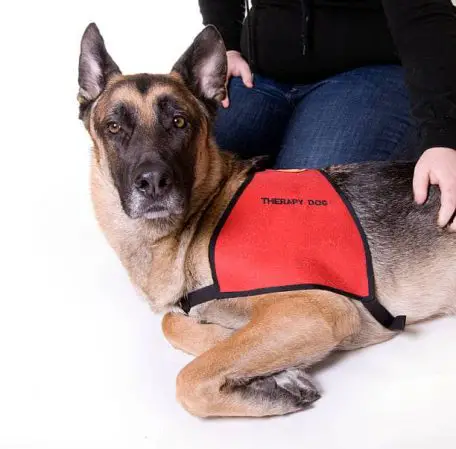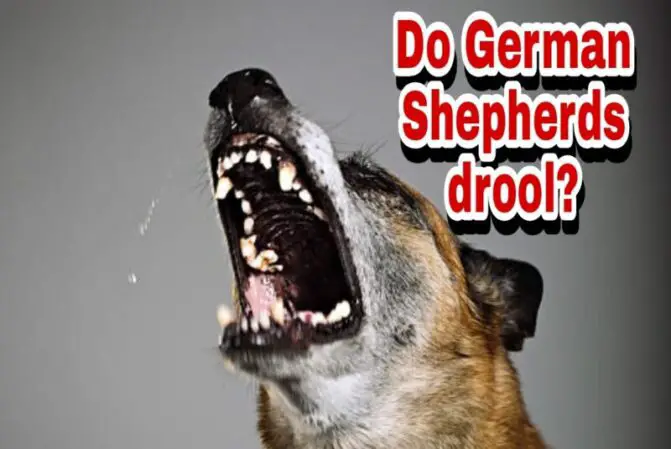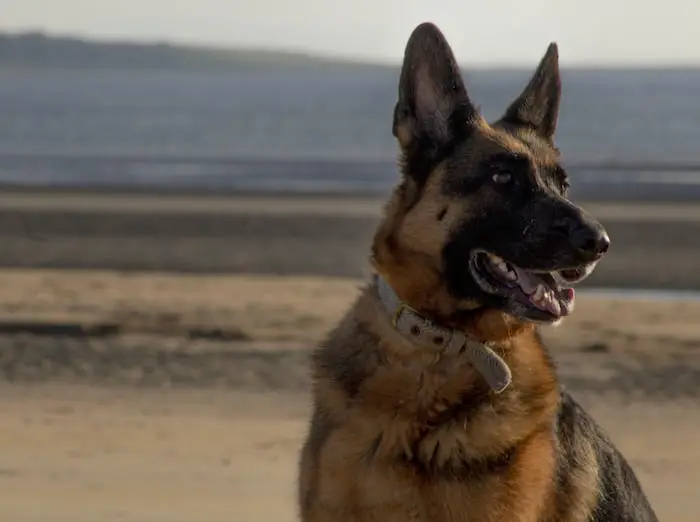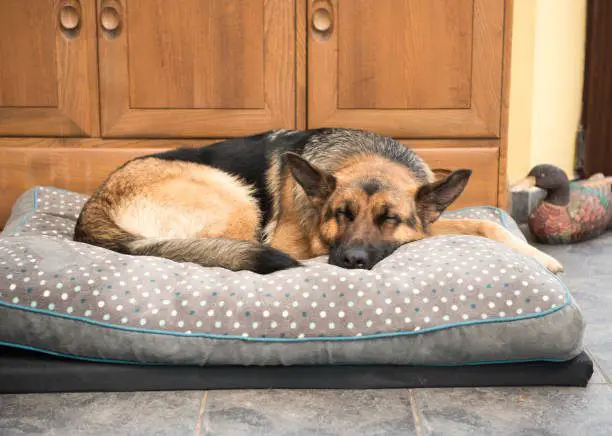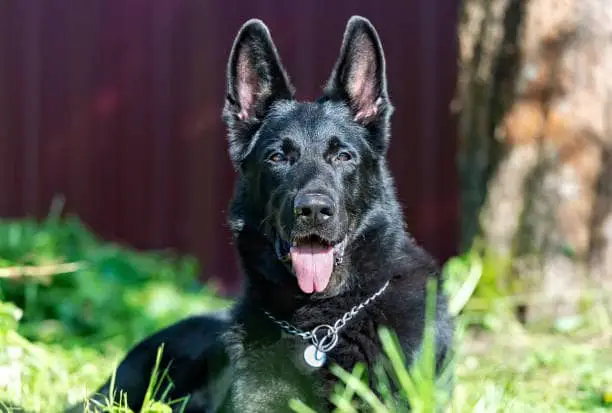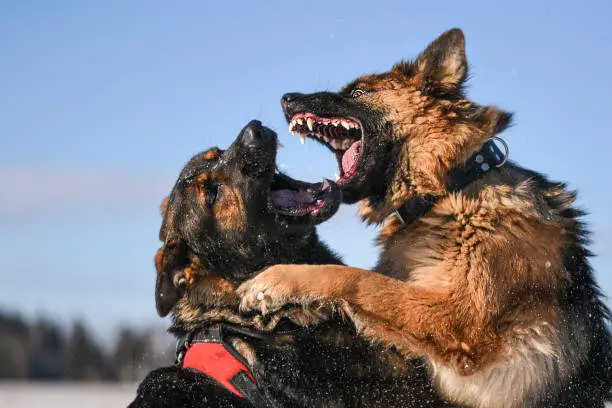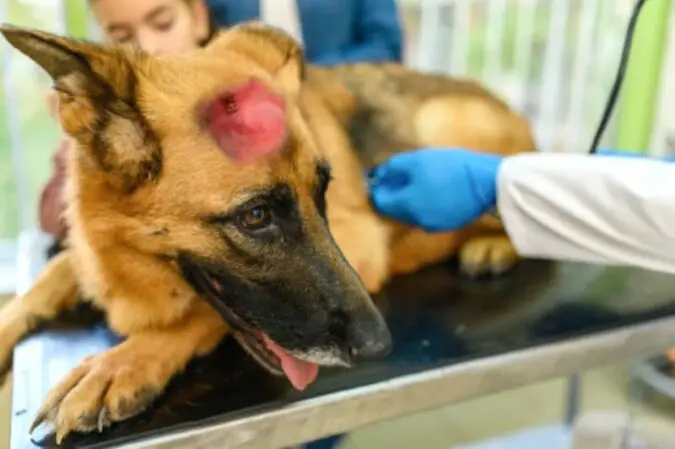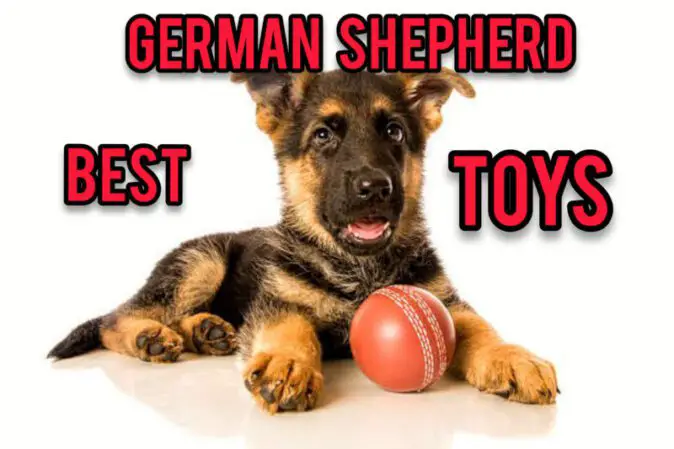German Shepherd Dog Info and Care Guide
German shepherd dogs are one of the most intelligent, loyal, hard-working and lovable dogs that you can have at home.
However, did you know that there are five different kinds of german shepherds?
So if you’re planning on bringing home a german shepherd then you should read this article.
German Shepherd History
The German shepherd dog was created by max Von Stephanitz in 1899.
They are now bred throughout the world but they have been split into five different types to suit different roles, needs and environments.
These gentle giants are the same dog breed but vary depending on their breeding and to some extent physical and temperamental differences.
Also read German Shepherd husky mix
Types Of German Shepherds
So let’s start with the first split.
The East German DDR Working Lines
The split occurred after the second world war and the division between the republics of east and west germany.
The east german government controlled the Deutsches Demokratische Republik aka DDR German shepherd dog pedigree registration and breeding program.
Due to which the breed had an ultimately distinctive look.
The DDR no longer exists today but the bloodlines still do.
With a strong solid lean heavy bone large massive heads with darker pigmentation and strong temperament.
They were specifically used as working dogs but due to low prey drive, they were used for military services like guarding, patrol and tracking etc.
Then the second split happened
The Czech Working Lines
German shepherds bred in Czechoslovakia were primarily working dogs used for their protection of their borders.
The unique thing about this split is that the breeding happened only in one kennel owned by Czechoslovakian army’s border patrol.
They bred the DDR dogs acquired mostly from east germany to reform the breed with more solid nerves, working ability, strong bones and dark pigmentation.
Czech dogs have a little less bone than their DDR relatives with a better balance of prey.
And defence drives are still available today mostly used by military companies and police organizations for their agility, tracking sensibilities, and tremendous work ethic.
Then the third split was formed by the west German people.
You can also check out best dog muzzle for German Shepherd
The West German Showline Type
The german shepherd was transformed from its original characteristics and concepts by a group of people.
Who focus on the form, structure and external appearance of the dog. With a gradual loss in their working agility.
West German show line dogs are known for their black and red pigment, large bone, plush coat and roach back structure.
They have an even temperament which is why they make great family dogs and are often considered to be the most beautiful dog in the appearance of all the lines.
The fourth split comes from the same type of circumstance.
The American German Showlines
During the second world war, the German Shepherd in america cut off from its german roots.
And through very close line breeding, they started to develop their own appearance.
The american breeders developed their own unique American style german shepherd, featuring a more “Refined Look” and a lot more hind leg angulation to get a floating side gait.
This American style german comes in all colors including panda and has no regard for working ability.
And the final split is
West german working line dog

This type is the only one closest to the original style dogs created by von stephanitz.
The west German working lines were bred to excel in working fields like guarding, protecting, aiding law enforcement or excelling at working titles like herding.
Their structure is solid, good bone higher in prey drive and colors include sables, blacks, bicolors and black and tan.
They are more hardworking and athletic than show lines and the best for love companions or family pets.
So these are the five different types of german shepherd dogs with their history and inherent differences.
German Shepherd Temperament
There are six personality traits that make the german shepherd one of the most popular and recognizable dogs around the world.

This dog is powerful, loving and calm.
We’ll share six personality traits that just about every german shepherd has and why it makes them so special. Number one is:
- Assertive
This dog is confident, proud, positive and bold.
Super assertive and controls just about every situation that they’re in.
When they’re around other pets, you can definitely see that they are the dominant one and assertive.
But assertiveness doesn’t mean that they’re necessarily aggressive and most of the time they’re not.
The german shepherd is assertive and you can see that every time you look at this dog.
It’s one of the main personality differences between a german shepherd and any other dog breed out there.
The next personality trait is;
- Confident
The german shepherd is positive and poised and full of confidence, especially a german shepherd that’s been trained well since an early age.
You can definitely tell they are confident, well trained and ready to please their owner.
The German shepherd’s confidence is a direct reflection of their owner and how confident they’ve been in training them and turning them into a great dog for them and the family.
- Hyper-Intelligent
This intelligence has allowed this dog to be a part of the police and military or fit in just fine with the family.
They are bright, sharp and eager to learn.
They have an active mind that has allowed them to be a part of a family and do just what’s required of them as the family dog.
Or they can be in tactical situations all depending on what you want from the German shepherd because they are so intelligent.
And one of the reasons they are one of the most popular dogs is because they can do just about any job.
- Powerful
Combine their super intelligence with size and athleticism to do just about every job and that’s another reason why this dog is so popular.
They can be up to 125 pounds for a male and up to 110 pounds for a female.
They’re big, they’re powerful and athletic. So again this makes them great for Police and Military.
But they can also be gentle giants and be a part of the family.
The next personality trait is;
- Loving
This dog wants to be a part of the family, wants to be close to its owner and wants to do just about everything to please you.
They are adoring, devoted and affectionate dogs.
We mentioned that they’re big, strong, powerful and confident.
But that doesn’t mean they also can’t be loving and affectionate.
And that’s just what they are and that’s why this dog again is one of the most popular dog breeds across the world.
They can do just about everything and more to exactly what you’re looking for in a dog.
Last personality trait is;
- Calm
Sometimes when you think powerful and intelligent, you definitely think hyper but that’s not the case with the german shepherd.
They are calm, quiet and restful. They can be active one minute and then laying by your feet the next.
Happy as can be calm and a perfect dog for the rest of the day.
The german shepherd truly is one of the most unique and coolest dogs because it can do just about everything.
From playing with you and the family in the backyard, to being hyper trained to being calm and restful.
German Shepherd Training Commands and exercises.
German shepherds live to be with their people which in theory makes these dogs ideal students for dog training.

You’ll want to know exactly what commands you’re going to use for each skill you want your dog to learn and you should aim for training to begin.
On the first day, your dog comes into your home.
According to AKC, If you’re training a working dog breed like the German Shepherd for the first time, you may not be aware of how many training systems exist for dogs today.
One of the most popular systems is called schutzhund which translates to “protection dog.”
With schutzhund, the dog is identified in puppyhood as being a potential candidate for this military-grade protection dog training regimen.
Which is designed to bring out the best in your german shepherd but you don’t have to use schutzhund to train your gsd.
It’s perfectly okay to start with basic training commands and decide later on if you want to enrol your dog in a more formal program of canine athletics or protection dog training.
The typical dog can actually learn 165 words and a really smart dog like a German Shepherd may be able to learn upwards of 250 words or more.
You’ll also need to consider the two different types of training signals and figure out whether voice signals or hand signals work best with your dog.
Voice signals tend to be the most popular choice because they can be used even in low light.
But hand signals may work better when your dog is farther away.
Especially if you have a naturally soft speaking voice.
You can also combine voice and hand signals to reinforce the command and make sure you have both options available to communicate with your dog in different situations.
The five most common training commands you can use to get your puppy or rescue dog up and running with basic training are;
- Come.
- Sit.
- Stay.
- Leave it and,
- Down.
Although if you’re training a puppy, the first command you’ll teach is go potty.
The next area to focus on is socialization training which includes teaching your dog where their special area is in the house.
How to behave at mealtimes, taking walks on a leash, and how to act during playtime.
These commands should always be issued in a positive, authoritative voice.
And should be followed up with a good dog training reinforcer the moment your dog obeys.
You can also read German Shepherd Coonhound mix
The associated set of training commands here are;
- ‘Crate (or kennel)’.
- Stand.
- Inside (or go in).
- Outside (or go out).
- ‘Heal’ to tell your dog to stay by your side.
- ‘Easy’ (or settle) to tell your dog to calm down.
- ‘Take it’ for offering meals or treats.
- ‘Get it’ for when you’re playing games like fetch.
- ‘no (or stop)’ to curb unwanted behaviors like barking.
- ‘At ease’ to tell your dog when work hours are over.
- ‘Wait’ (or ‘watch me’) can be used for mealtimes.
- And ‘Quiet’ for getting a vocal German Shepherd to stop whining, barking, or whimpering.
Other fun training and tricks commands are;
- ‘Shake (or paw)’.
- Rollover.
- Play dead.
- Speak.
- Fetch.
- High five and,
- Jump.
Final Thoughts
The German Shepherd is a good, intelligent, and nice family dog that was created by Max Von Stephanitz in 1899.
The German shepherd has a very nice temperament and adhere training commands such as sit down, get it and so on. They are also of various types.
Thanks for reading. Please if you have any questions about German Shepherd, kindly do well to drop a comment below.
